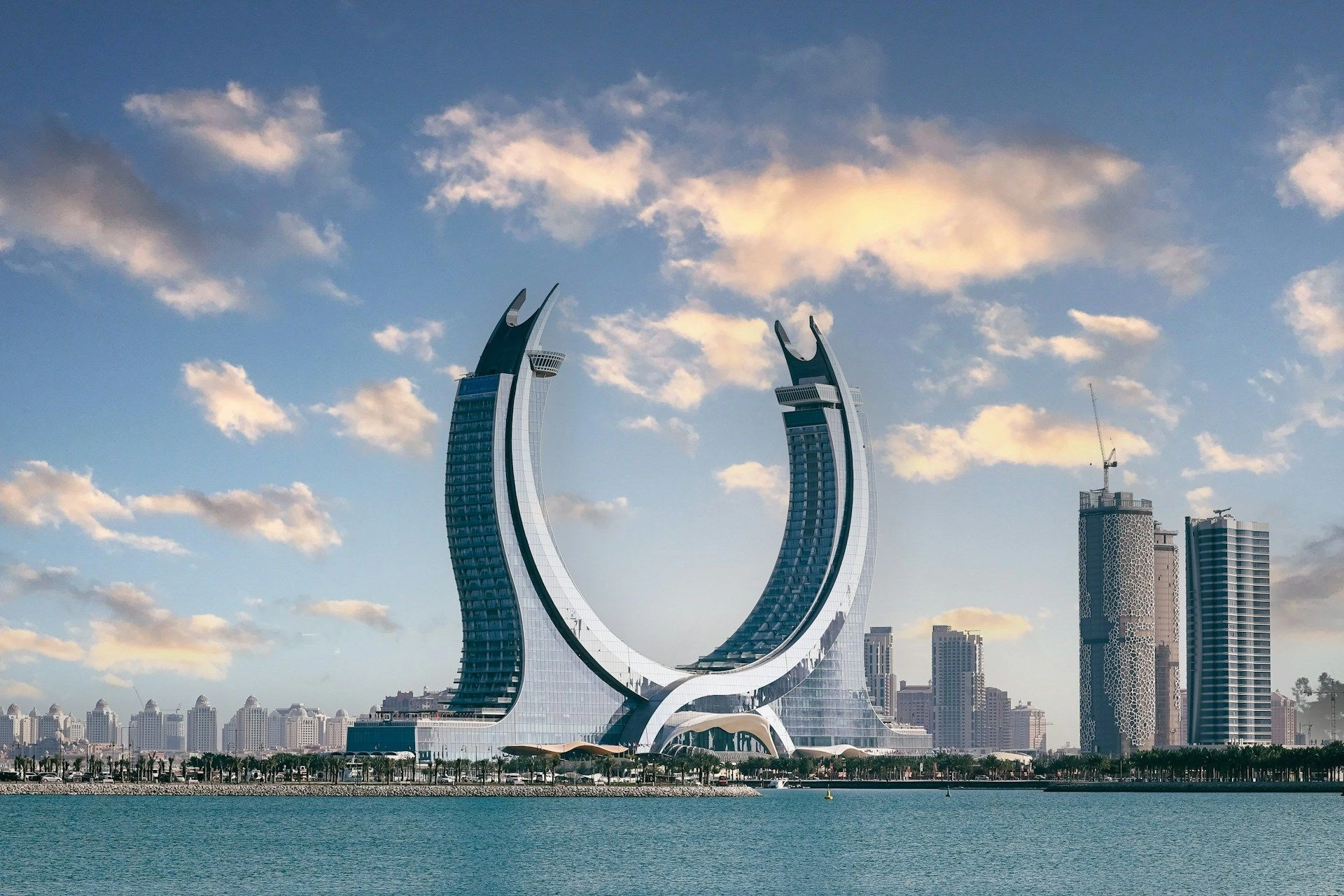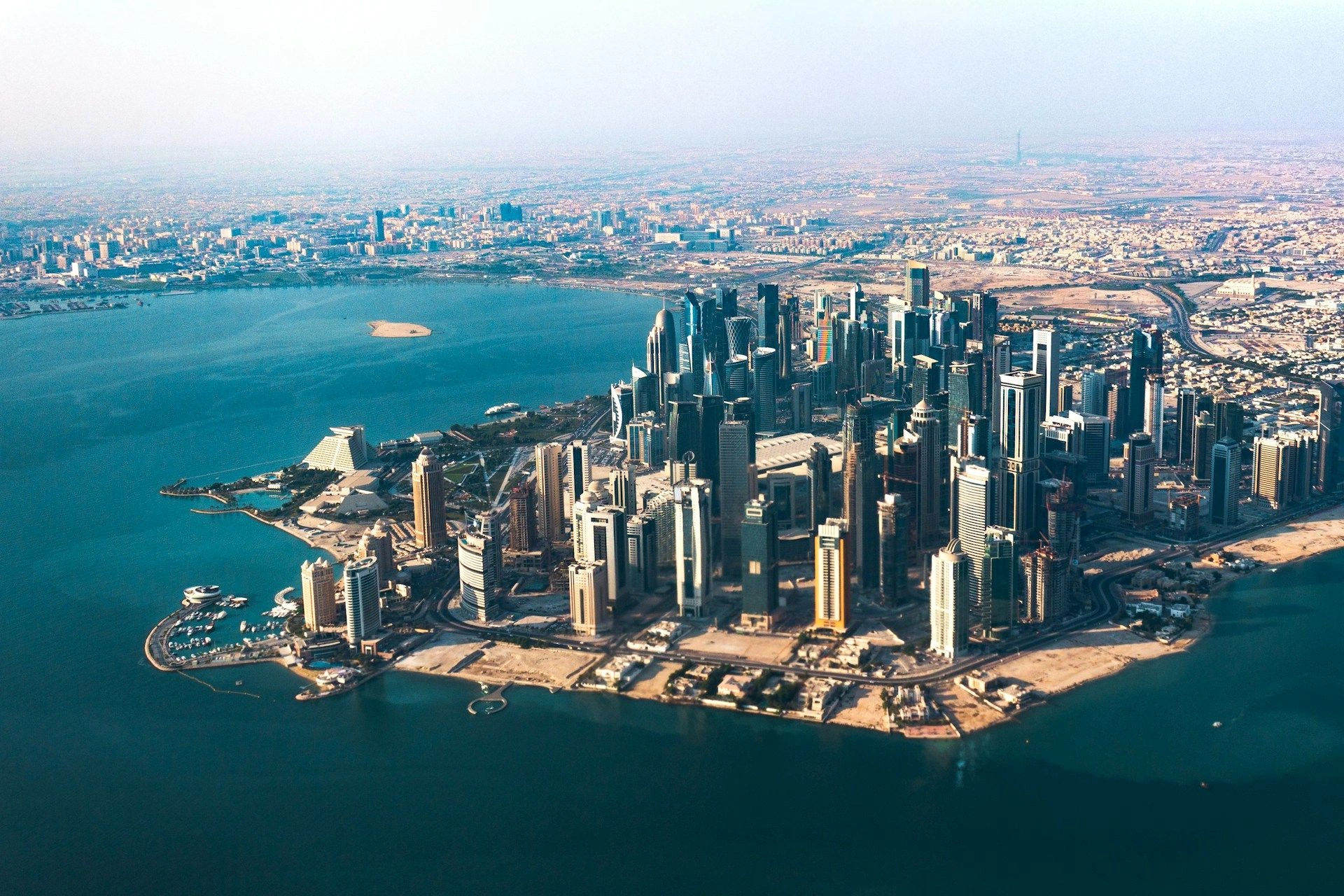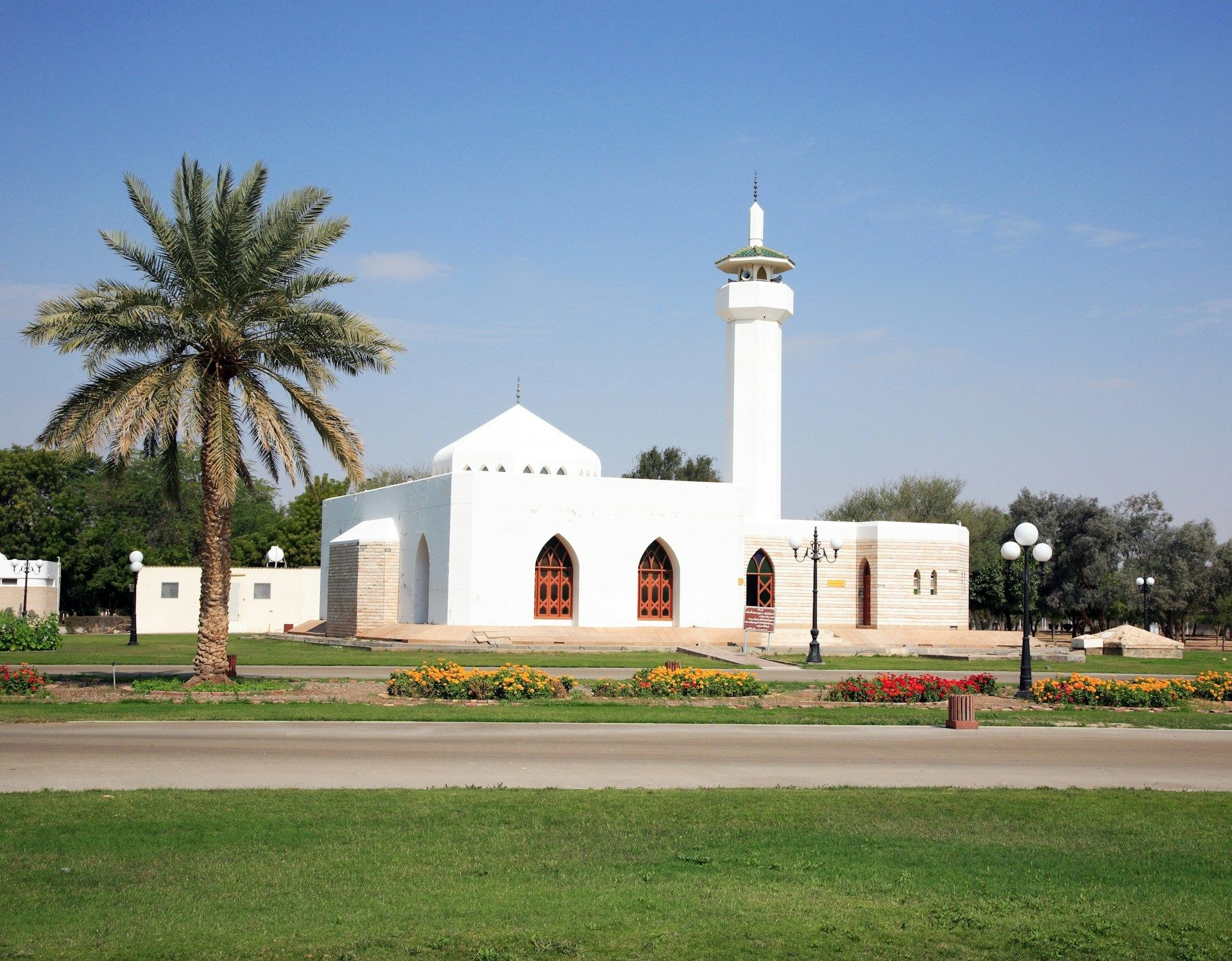Qatar Commercial Property Market – Opportunities for BuyersCountry of towers, coastline andinvestor-friendly rules

Best offers
in Qatar
Benefits of investment in
Qatar real estate

Guide for real estate
investors in Qatar
read here
Freehold zones open to foreigners
Qatar allows non-citizens to buy property in designated areas like The Pearl and Lusail, offering full ownership and residency options.
Tax-free rental income
Investors enjoy 0% income and capital gains tax on real estate — ensuring maximum net returns.
Prestige projects and future growth
With government-backed development and global events like the World Cup, Qatar's property market is positioned for long-term value.
Freehold zones open to foreigners
Qatar allows non-citizens to buy property in designated areas like The Pearl and Lusail, offering full ownership and residency options.
Tax-free rental income
Investors enjoy 0% income and capital gains tax on real estate — ensuring maximum net returns.
Prestige projects and future growth
With government-backed development and global events like the World Cup, Qatar's property market is positioned for long-term value.
Property highlights
in Qatar, from our specialists
Found: 0

Useful articles
and recommendations from experts
All
Investment
Global Market Guides
Qatar
Qatar Real Estate 2025: Ownership Rules, Top Districts & Investment Outlook
Real Estate in Qatar: Who Can Buy, Where to Invest, and What the Law Says in 2025
29.02.2025

Real Estate News & Trends
Popular
Qatar
VelesClub Welcomes Qatar to Our Diverse Portfolio
VelesClub Welcomes Qatar to Our Diverse Portfolio
17.09.2023

All
Popular
Qatar
Qatar’s Future: A Vision of Economic Growth and Global Influence
Qatar is positioning itself as a key player on the global stage through innovation, diversification, and sustainability.
10.07.2025

Buy Commercial Property in Qatar: Strategic Investments in a Transforming Gulf Powerhouse
Qatar, perched on a peninsula jutting into the Arabian Gulf, exemplifies modern economic ambition balanced by deep-rooted cultural heritage. Fuelled by substantial hydrocarbons wealth, the nation has channelled resources into cutting-edge infrastructure and a global business framework. As a result, those looking to buy commercial property in Qatar enter a dynamic market underpinned by the government’s 2030 National Vision and infrastructure initiatives. Thanks to its strategic location in the Middle East, robust energy exports, and flourishing tourism profile, Qatar’s real estate—particularly in and around Doha—continues to attract foreign capital.
Central to Qatar’s allure is its proactive strategy to diversify beyond oil and gas. Public and private sector projects in education, healthcare, sports, and entertainment propel demand for new commercial spaces, including state-of-the-art offices, luxury hotels, and mixed-use developments. With the country hosting global sporting events and expanding freehold zones for international buyers, the commercial property scene remains on an upswing. Investors hunting for commercial real estate for sale in Doha or other booming locales find themselves amid a Gulf region investment opportunity driven by supportive policy frameworks.
Commercial Real Estate for Sale in Doha: An Evolving Urban Landscape
Doha, Qatar’s capital and largest city, features a striking skyline of avant-garde towers along the scenic Corniche. Over the last decade, it has accelerated its standing as an international nexus of finance, culture, and diplomacy, drawing expatriate workers, multinational firms, and visitors from across the globe.
1. Rapidly Developing Urban Districts
From Lusail City—a master-planned coastal hub showcasing marinas, shopping districts, and corporate clusters—to the upscale Pearl-Qatar, Doha’s modern zones seamlessly integrate high-end residential, commercial, and leisure functionalities. Investors with an early stake in these emerging neighbourhoods often capture value appreciation once projects reach completion and occupancy rates climb.
2. Office Space in West Bay
As Doha’s signature business district, West Bay is renowned for its soaring skyscrapers that host corporate headquarters, finance giants, and diplomatic missions. Purchasing office space in West Bay offers sustained demand thanks to the city’s expanding private sector, government-linked initiatives, and international partnerships. Multi-year corporate leases typically produce a dependable revenue stream, appealing to institutional and individual buyers alike.
3. Freehold Zones for Foreign Investors
Qatar’s newly introduced freehold zones for foreign investors enable complete property ownership in specific areas, removing previous barriers to entry. Well-located commercial units within these zones can be sold or leased without local sponsorship. For investors aiming to exit or expand portfolios, this legal clarity fosters greater liquidity and confidence.
4. Hosting Global Sporting Events
Qatar’s robust sports schedule—encompassing major football tournaments, tennis championships, and motorsport races—ensures a cycle of visitors throughout the year. Commercial sites near stadiums, fan zones, or popular thoroughfares often reap benefits from heightened footfall, allowing for premium rents and strong brand exposure.
Invest in Qatari Real Estate: Core Market Catalysts
Opting to invest in Qatari real estate involves capitalizing on Qatar’s overarching economic agenda, which blends infrastructural upgrades with social development and sustainability:
1. 2030 National Vision and Infrastructure
Central to Qatar’s blueprint, the National Vision 2030 underlines wide-ranging improvements in transport, urban facilities, and resource management. High-speed highways, metro lines, and city expansions elevate the attractiveness of commercial assets near these developments. Investors targeting plots ahead of infrastructure completions often lock in lower prices before subsequent value surges.
2. Expanding Hospitality and Tourism Sector
Although overshadowed by Dubai’s mega-resorts, Qatar has fashioned its own tourism brand: cultural museums, desert adventures, and upscale retail catered to affluent travellers. Hotels, apartment-hotels, and leisure outlets reflect the expanding hospitality and tourism sector that could yield robust occupancy and revenue, particularly during high-profile events.
3. Strategic Location in the Middle East
Bridging Europe, Asia, and Africa via prime air routes, Qatar’s Doha-based Hamad International Airport consistently ranks among the best globally for passenger experience and efficiency. This maritime and aerial connectivity welcomes multinational corporations, international expos, and transit tourism—all of which buoy commercial real estate activity.
4. Gulf Region Investment Opportunities
As a key GCC member, Qatar benefits from collaborative ventures with Saudi Arabia, the UAE, Bahrain, Oman, and Kuwait. Cross-border trade, shared cultural ties, and a mobile regional workforce contribute to a steady demand for offices, retail space, and corporate lodging. The country’s global outreach also means foreign companies frequently establish regional headquarters in Doha, underpinning steady occupancy for prime commercial buildings.
Office Space in West Bay: Doha’s Prestigious Financial District
For many institutional buyers and corporate users, office space in West Bay stands as the epitome of Qatari business sophistication:
1. High-Profile Tenants
Towering office blocks in West Bay typically attract banks, energy conglomerates, engineering consultancies, and governmental agencies. Securing multi-floor leases from such high-credit tenants secures stable cash flows—albeit at loftier entry prices than less central zones.
2. Luxury Amenities and Facilities
Properties in this district often incorporate modern designs, panoramic sea or city views, and upscale features such as premium concierge services, efficient security systems, and ample parking. This luxury positioning aligns with the preferences of global executives and corporate travellers—contributing to potentially elevated rental rates.
3. Branding and Networking
Occupying or owning an office in West Bay confers an advantage in brand identity—projecting credibility and global presence. Firms can utilize neighbouring conference centres, five-star hotels, and dining venues for networking, meetings, and corporate events, creating an ecosystem that heightens property appeal.
4. Connectivity and Infrastructure
Public transport routes—particularly the Doha Metro—and arterial roads link West Bay seamlessly with the airport, seafront districts, and commercial hotspots. Properties close to key stations or major thoroughfares achieve better occupancy since employees and clients benefit from reduced travel times.
Qatar Property Market Forecast: What Investors Should Watch
Evaluating the Qatar property market forecast underscores an environment that, while dynamic, is shaped by robust government planning and regional economic factors. Key considerations include:
• Rapidly Developing Urban Districts
Lusail City, Al Wakrah, and parts of Doha’s suburban fringe exemplify large-scale real estate projects blending residential, commercial, and recreational elements. Getting in early on well-located commercial parcels in these zones can yield long-term appreciation once these areas fully develop.
• Freehold Zones for Foreign Investors
Qatar’s legislated freehold areas expand, welcoming outsiders to own commercial and residential units outright. Staying informed on forthcoming zones or policy updates helps international buyers capitalize on new investment corridors before prices inflate.
• Hosting Global Sporting Events
Following major football tournaments and other grand events, Qatar capitalizes on enhanced infrastructure and global visibility. Commercial real estate in prime event districts experiences rising valuations as sports tourism transitions into steady lifestyle- and business-driven traffic.
• Economic Diversification Beyond Energy
While liquefied natural gas remains Qatar’s powerhouse, advanced manufacturing, healthcare, and education are gaining ground. Commercial spaces tailored to these sectors—such as specialised labs, clinics, or training centres—may see higher occupancy and premium rents.
Position Yourself in Qatar’s Evolving Landscape
Overall, as you buy commercial property in Qatar, you gain entry to a Middle Eastern hub orchestrating its economic future with precision. From commercial real estate for sale in Doha to premium office space in West Bay, the market brims with possibilities—fostered by policy-driven growth, infrastructural leaps, and a constant stream of international gatherings.
Prudent investors keep abreast of local regulations, shifting freehold rules, and upcoming infrastructure developments. Working with established local advisors, realtors, and legal experts ensures deals align with government guidelines and location-specific potential. Whether tapping into Qatar’s thriving financial sector, expanding hospitality and tourism industry, or next-generation tech initiatives, the nation stands well-poised to reward strategic commercial acquisitions.
Driven by 2030 National Vision and infrastructure expansions, Qatar continuously upgrades transport networks, city planning, and facilities—reinforcing Gulf region investment opportunities. For those willing to blend due diligence with foresight, Qatar’s stable governance, high global profile, and commitment to sustainable growth can yield robust returns from a flourishing commercial property market at the forefront of the Arabian Gulf’s evolution.


